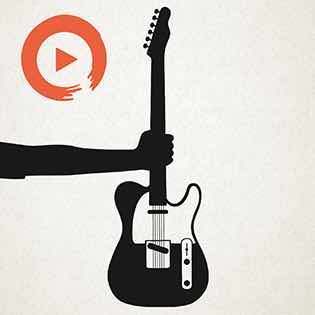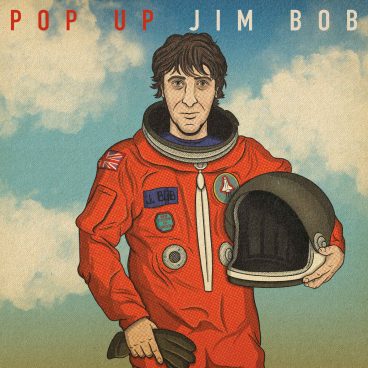In the week of Valentine’s Day 1978, an anthemic and yet shocking protest song on a 4-track live EP sneaked under the radar to become a Top 20 hit in Britain. It was a song in which The Tom Robinson Band shamed a nation with a first-hand account of the abject indignity of being gay in 1970s Britain.
The song is pregnant with irony. After all, who could be “glad” to be born this way, when it means a lifetime of prejudice and discrimination, a life in which you may be rejected by your own family, have your career cut short by innuendo and in which the establishment has a legal right to intrude on your privacy?
And brilliantly, rather than lash out at the bigots, Tom Robinson uses their own words to undermine them. “The British Police are the best in the world,” begins the first verse as Tom tells an “unbelievable” story about the persecution of beating of innocent gay men, ending with a denial that calls to mind Nazi wartime collaborators and sends a shiver down the spine: “I don’t believe that sort of thing happens here”.
“I guess the song Glad to be Gay was a sarcastic retort,” Tom explained in 2017 in an interview by William Brougham, “saying: ‘Sing if you’re glad to be gay, if that’s even fucking possible’. Which was really what the verses were setting out to do, was detail the reasons why you might not be. But funnily enough, once it came out as a single, and was released by EMI records and got into the charts – it was on an EP that got to Number 18 in the chart, which was great – once it had become a hit record, people started to regard it, despite the sarcasm, as a celebratory song… And that was okay, too.”
“‘Glad to be gay’ was a slogan in the mid-70s London LGBT scenes,” Tom continues in the William Brougham interview, “and it was a little yellow badge that pre-dated the song which you used to see people wearing at gay discos – in the old sense of gay, which was every letter of LGBTQI, all-inclusive. And at the time there was quite heavy oppression by the London police. The Metropolitan Police were hauling in all kinds of minority groups, so black people were are getting picked up on suspicion of anything and the “sus” laws which allowed the police to arrest you on suspicion of pretty much anything were being applied against gay men as well, particularly, because they could get soft arrests by going in and busting gay clubs and pubs, because the victims of the arrest weren’t likely to contest it because they didn’t want publicity at that time.”
In the introduction to the original live version, Tom sarcastically “dedicates” the song to the World Health Organization, which at the time had officially declared homosexuality to be a disease and, in the dehumanising way that bureaucracies so often do, allocated it a number: 302.0. That was the background to which TRB entered the charts.
In the mid-1970s, the shame of being exposed as gay was devastating for people who had been forced to live a lie in order to avoid physical harm and social ostracism.
It had been only around a decade since the Sexual Offences Bill 1967 had decriminalised “homosexual acts” in private between men aged over 21. Homosexuality at the time was characterised as morally unacceptable by the country’s institutions, including almost all branches of church, school and media. It may be hard to imagine for younger people today that even in show business the likes of Freddie Mercury were hiding in plain sight – refusing to speak publicly about his sexuality because of the damaging effect it would have on Queen’s career.
“At the time it looked like commercial suicide,” admits Tom about the release of the single. “And it certainly affected record sales adversely”.
“There was a woman called Dorien Davis who had a sticker put on it in the BBC library that said it was not to be played,” he recalls, bitterly, “and she kept stickers on my tunes for the next five or six years, so nothing of mine got played on Radio One for a fair while after that. John Peel ignored the sticker and played it anyway, bless him. I think he said: ‘This is Tom’s most trenchant offering to date’.”
The lyrics have changed over the years. When he settled down with a woman to raise a family, Robinson added a verse that sought to convey that he was not obliged to explain or justify the complexities of his sexuality because “a label is no liberation at all”. And most notably, in the wake of the worldwide tragedy of AIDS, he added a verse beginning “And now there’s a nightmare they blame on the gays / It’s brutal and lethal and slowly invades” and ending with: “The message is simple and obvious, please / Just lay off the patients and let’s fight the disease”.
“Glad to be Gay was always a piece of reportage,” says Tom. “It was like saying: ‘This is what’s going on at the time in ’76. By the time I performed it in ’78, already a verse or two had changed. And by the time I did it for the Secret Policeman’s Ball in ’79, again another verse or two had crept in. So, you never wanted a song like that to become a museum piece, where it was just reporting on old injustices when there was so many more bloody new ones on the way. And of course by the time AIDS came along, there were whole new rafts of reasons why the song was important, and why it was important to keep it up-to-date. And a friend of mine has actually very kindly built a website at gladtobegay.net where he chronicles all the different versions.”
“It’s only in retrospect that it’s held its own and come to be seen as something that people remember and that has been significant for people,” he concludes. “But at the same time, if it made a difference to some people’s lives, and it helped soundtrack the struggle just through the accident of having got into the Top 20, then that was a good thing and I’m so proud all these years later. I think more proud of that than a couple of records that were bona fide Top 10 singles.”







